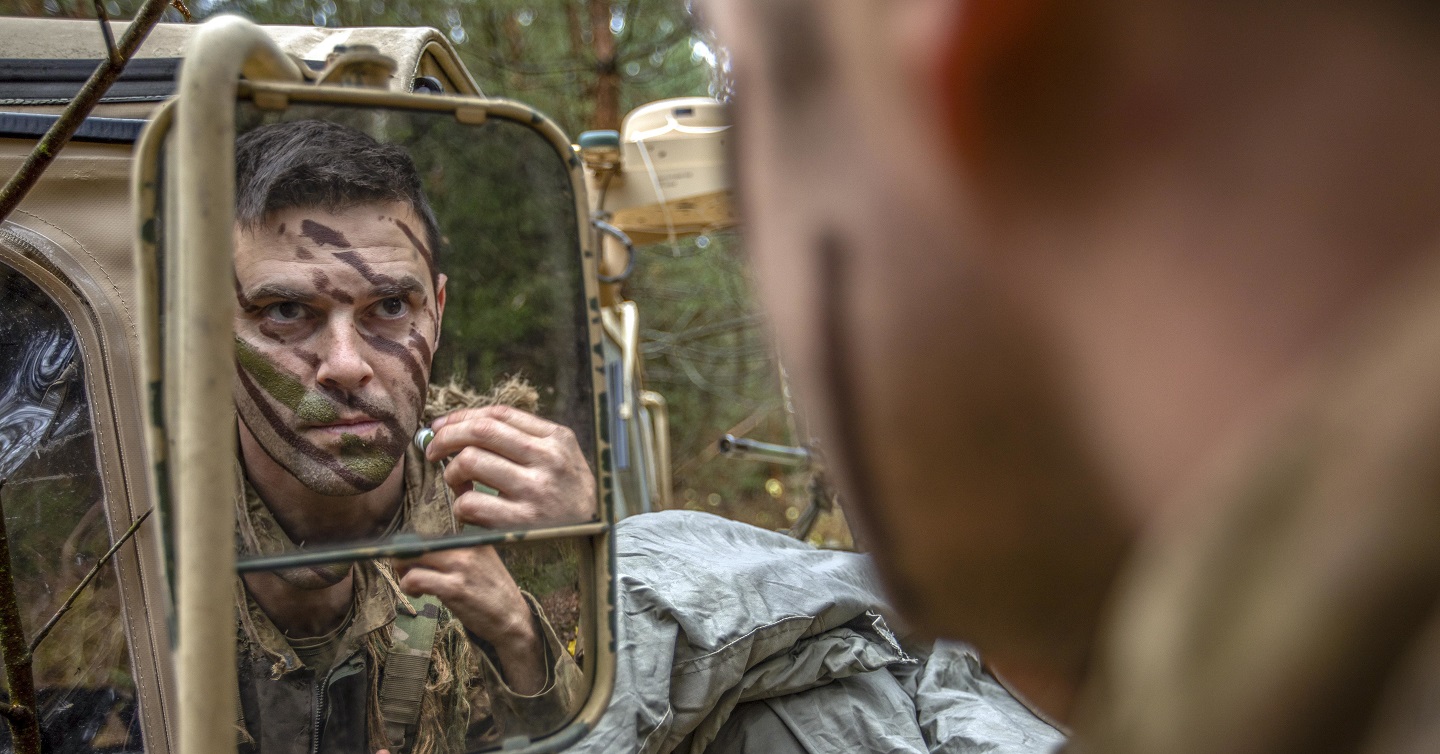
We must be clear that ends matter as well as means. To serve an immoral cause, to forswear one’s Constitutional Oath, to engage in treason, even acting within the rules of conduct in war, is not a cause for public adulation.
The American military needs a code of ethics. The American military places considerable emphasis on the ethical aspects of service through instruction in leadership, military ethics, and the various sets of branch core values. Very often, however, reality falls far short of the ideal. Military service can blunt or misdirect the ethical sense. Trauma, disillusionment, an exaggerated sense of entitlement, and what has been termed “moral injury” (MI) can lead a servicemember astray in their ethical behavior. Reminders of this are not hard to find. They include the spectacle of veterans’ difficulties assimilating into civil society, and revelations of war crimes and other forms of misconduct, to include sexual assault. A disproportionately high percentage of those who attacked the U.S. Capitol on 6 January were, shamefully, military members and veterans. White supremacist groups have gained a foothold in all branches and among veterans. The idea that racist and fascist ideology is compatible with military service, even that it complements service in the American armed forces, has somehow been allowed to take hold and to grow. The Armed Forces has an ethics problem.
A notable example demonstrating the need for an explicit statement of ethics with clearly defined right and left boundaries comes from the highest levels of the military. Chairman of the Joint Chiefs General Mark Milley’s participation in a partisan political event with then-president Donald Trump was the subject of much criticism. To his credit, Milley recanted his conduct, and he later pointed to his Constitutional obligation of principle over parties and persons during the transfer of Presidential power to Joe Biden. Still, the fact that the senior officer in the whole of the armed forces, the president’s principal adviser on military matters, underwent a period of public confusion regarding his professional and ethical obligations is a clear indicator of the need for more clarity and conversation regarding the vital ethical underpinnings of military service.
The need for a code is furthermore illustrated by the debate over Confederate monuments. We must be clear that ends matter as well as means. To serve an immoral cause, to forswear one’s Constitutional Oath, to engage in treason, even acting within the rules of conduct in war, is not a cause for public adulation. We may try to understand the reasons for such desertion, and even feel a degree of respect for those who fought well, but in this instance the egregiousness of the Confederate’s cause, described by U.S. Grant as one of the worst for which men have fought, puts them beyond the pale of honors, reward, or public expressions of admiration. The current debate over the handling of Confederate monuments is a contentious issue which a clear ethics code would help clarify.
Unethical behavior erodes public trust. We have seen in recent months a crisis of confidence in law enforcement among many Americans. How far the “defund the police” movement will go remains to be seen, but it should serve as a reminder of the consequences of a respected public institution failing to hold itself accountable, to “police its own ranks.” Since 6 January, polling has shown declining numbers of people expressing trust in the military, and not without reason.
This is a time for the armed forces to recommit itself to high standards of conduct. A DoD Ethics Code would communicate our commitment to the American people, from whom we draw our members, spirit, and strength, and to whom we are finally and fully accountable. I propose the following DoD Ethics Code for consideration:
- As a member of the United States Armed Forces, I will never dishonor my country or my uniform by turning my weapons on the unarmed: civilians, the wounded or disabled, prisoners or those attempting to surrender. I will not engage in beatings or torture towards any person.
- If I learn of acts of violence towards the unarmed, I will report this to my chain of command without fear or favor.
- If in command, I will pursue all reports of violence towards the unarmed until I am satisfied that the demands of justice and of the highest traditions of an honorable profession have been met.
- I will set an example of my commitment to human rights and diversity, to gender, racial, and ethnic equality, and I will exert myself to ensure that my fellow service members do likewise.
- I will refrain from private commercial or partisan political activity while on duty or in uniform.
- I will respect the religious beliefs or absence of religious belief in my fellow service members, and I will never seek to impose my own beliefs on others.
- I will demonstrate respect for the institutions of democracy and support for the electoral and legislative process.
- I will never place loyalty to my unit, to an individual, or to my service branch above the interests of the nation, the lives of my fellow service members, or the truth in all matters.
- In war, I will seek an honorable victory gained at the lowest possible cost in lives and suffering.
- I will never forget that my I and my fellow service members are members of an honorable profession, American citizens with Constitutional rights, and human beings entitled to opportunities to grow and flourish, that our lives have value even as circumstances may require us to hazard our lives.
The code would serve as doctrine, as a bridge of understanding concerning the most vital, “top ten” ethical underpinnings of military service.
The code would apply to all members of the armed forces and Defense Department. It reflects the U.S. Constitution, the United Nations Universal Declaration of Human Rights, the Law of Armed Conflict, the U.S. Uniform Code of Military Justice, the services’ core values and Code of Conduct, along with other documents pertaining to ethics in the military, such as the Joint Ethics Regulation.
The code would serve as doctrine, as a bridge of understanding concerning the most vital, “top ten” ethical underpinnings of military service. This code of ethics would be a clearly defined pledge by service members not to waver or compromise in matters of ethics, but to remain faithful to the American people and to the high ideals that should sustain us in times of peril and adversity. Bright lines combined with honest dialogue are needed. To paraphrase Shakespeare’s King Lear, too little mind has been taken of this subject. We are living through what one writer has described as an epistemological crisis, a crisis over of truth. Clear thinking, as Pascal remarks, is the first principle of ethics. A DoD Code of Ethics would provide for such clear thinking in simple, clear language.
Some might argue that to add another set of rules regarding ethics is unnecessary given the guidelines and cultural norms already in place. I disagree. The existing guidelines are in fact often ethics-neutral, or insufficiently clear and explicit as to what kind of ethical conduct is expected of a service member. The Marine Corps Core Values of Honor, Courage, and Commitment, for example, could be adopted without alternation by the soldiers of a fascist regime! The Uniform Code of Military Justice prohibits the most egregious behavior, but it does not explicitly encourage a commitment to human rights and democracy. Other documents having to do with ethical conduct by military members and other federal employees are lengthy and complex, and they contain much information that most enlisted members and even officers would find irrelevant and read only rarely. Even the Constitutional oath is subject to misinterpretation, as evidenced by the extremist group calling itself “Oath Keepers,” some of whose members participated in the outrage on 6 January. A DoD Code of Ethics would make clear that to serve in the armed forces of a democracy is fundamentally different from serving a tyrant or authoritarian state. This distinction cannot be left to chance. It must be spelled out in simple, explicit language and reinforced by example and exhortation.
The greatest call for an ethics “surge” may come from American servicemembers’ own self-respect as members of the armed forces, past, present, and future. Many fine, idealistic young men and women join up only to find that the organization’s performance does not always live up to advertising. An ethics code would help the American military secure and retain the respect and the recruits it deserves. American officers must look at themselves and ask whether they like what they see. Knowing themselves and all they have achieved, they might conclude that they can do better.
Reed Bonadonna is a retired Marine Corps infantry officer and field historian. He was director of ethics at the U.S. Merchant Marine Academy and is a former fellow of the Carnegie Council for Ethics in International Affairs. His most recent book is How To Think Like an Officer: Lessons in Learning and Leadership for Soldiers and Other Citizens.
The views expressed in this article are those of the author and do not necessarily reflect those of the U.S. Army War College, the U.S. Army, or the Department of Defense.
Photo Description: Army Sgt. Forrest Layton applies face paint before a training event at Bemowo Piskie Training Area, Poland, Nov. 14, 2018, during NATO joint training exercise Anakonda.
Photo Credit: U.S Army Photo Sgt. Sarah Kirby





Given the clear popularity of former President Trump and his movement (Trump received 10 plus million more votes in the 2020 election than he received in the 2016 election?),
And given the criticism of President Trump by many of his former and current senior military officials. (See, for example, the September 24, 2020 “Time” article entitled ” ‘You Bet Your Ass I’ve Got Regrets’ As Election Day Nears, More of Trump’s Former Officials Are Speaking Out Against Him” by Kimberly Dozier. Here is the link: https://time.com/5892948/trump-former-officials-speak-out/ )
Given these such matters, then should we not, accordingly,
a. Associate the decline in the number of people expressing trust in the military; this,
b. More with the fact that Trump’s supporters have come to see the U.S. military (and specifically BECAUSE of its much more-ethical nature?) as a clear and present danger to both (a) former President Trump and (b) his and their cause and movement?
You make a good point, tho’ I haven’t seen polling that drills down to that extent. I still believe we should seek the ethical high ground, even if that makes us unpopular in some circles. How much is certain kinds of support worth? The people who assaulted the Capitol consider themselves supporters of law enforcement but they attacked police officers!
Items 4 – 8 of your proposed DoD ethics code above, these seem to have been developed, and proposed, specifically so as to (a) help our military personnel (b) deal with such things as the/a Trump or Trump-like phenomenon — today and going forward.
If this, indeed, is an accurate observation, then, once again, might this not cause:
a. Former President Trump and his supporters
b. And those of his and their ilk today and going forward
c. To even more clearly see the U.S. military as being in the “enemy” camp?
(Thus, should Trump, or someone like Trump become the Commander-in-Chief of U.S. military forces sometime in the future, then should we not expect that this CinC would immediately eliminate item 4 – 8 of your suggested Code of Ethics above?)
Wouldn’t it be easier to take a traditional approach and remain apolitical in partisan situations? This ethical approach is particularly important for senior Field and Flag grade officers. I’ve been so disappointed by the conduct of recent generals and admirals still on active service because they seem to have left commitment to their oaths behind.
I guess some future demagogue might repeal the code, or part of it. Perhaps that could be an occasion for the CJCS or others to resign in protest and go public. The American people respect the military more than they do politicians, and such a debate could be very damaging to the chief executive and his ilk. Anyway, “we” (the military) would have gone on record, taking a stand on some vitally important matters. If not our finest hour, it would at least be to our credit.
Reed,
Thank you for your article. Many good, though provoking elements.
Also, thank you for your service, Devil Dog.